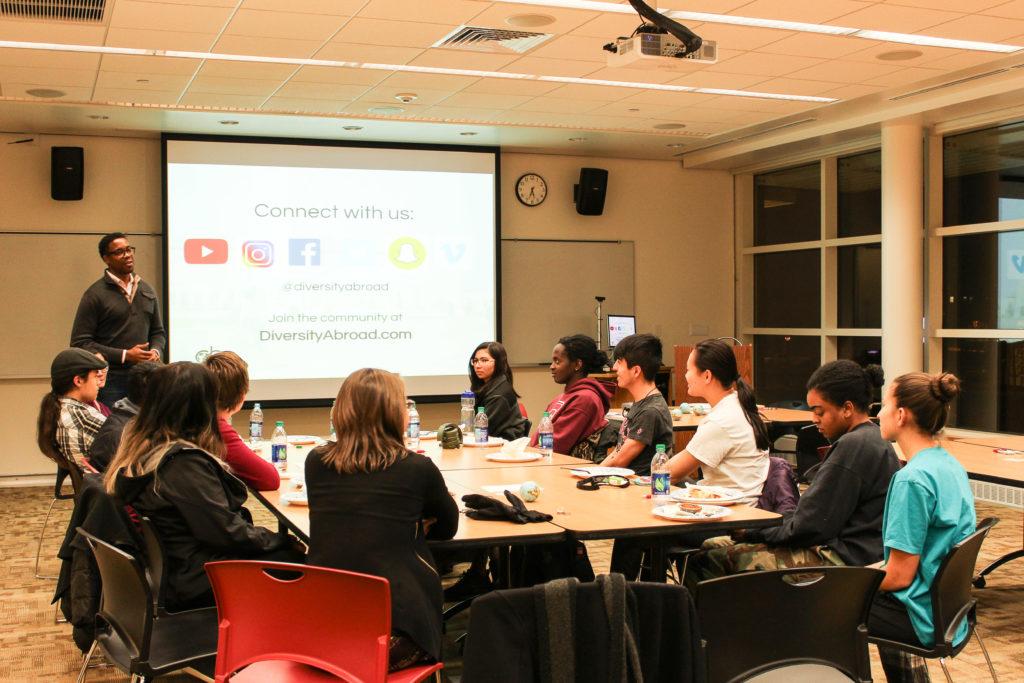Studying for a semester abroad can be a life-changing opportunity for students. However, for students with marginalized identities, spending an extended period of time in a foreign country with an unfamiliar culture can also result in anxiety-inducing situations. Andrew Gordon, the founder and president of Diversity Abroad, a group that strives to increase access and safety for marginalized groups while studying abroad, spoke about this issue on Thursday, Nov. 9 at a workshop for College students.
Gordon’s desire to promote diversity in study abroad programs came from his own experiences as a student.
“I studied in Mexico and Spain, and then I interned in Spain when I got out of school. One of the things I noticed, particularly during my semester abroad while I was in school … was that I was in one of those large programs, probably a hundred or so students, and I was one of four or five Black or brown kids there. I had this amazing experience, but one of those that’s just really evident to you is just hey, students like me aren’t doing this.”
Diversity Abroad works to help students who are from traditionally subordinated backgrounds, including but not limited to students of color, queer students, first-generation students and students with disabilities, have successful and enriching trips abroad. The organization’s website provides access to scholarship information and career resources, as well as forums for students and alumni to communicate about their experiences.
Gordon went on to explain Diversity Abroad’s unique mission.
“Diversity Abroad is an organization that was founded to address diversity, equity and inclusion in international education, both from the standpoint of how to diversify the population of students who go overseas, to ensure that it’s representative of the student population at our individual institutions, as well as to support the success of students throughout the overall process,” Gordon said. “It is our firm belief that global programs can greatly benefit students both from an academic standpoint, an interpersonal growth standpoint, and then from a career development perspective.”
In addition, Gordon said, the organization works on training educators to support students experiencing familiar issues in an unfamiliar setting.
“The days are gone when we only sent upper middleclass white women abroad; that was the traditional study-abroad population for a very long time,” he said. “The population is becoming more diverse, which is exciting … But we know that when you send a more diverse group of students abroad, you’re going to have a higher propensity for there to be challenges. Those challenges can be in the cohort – if you think about some of the dynamic that we see on U.S. campuses between different groups of students from different backgrounds, those dynamics don’t necessarily stop when the students go abroad.”
In addition to the specific difficulties that students face in unfamiliar settings, Gordon also highlighted the importance of training educators on how to work with students who come from varying backgrounds.
“We’re educating professionals, particularly those who aren’t U.S.-based … on the different populations of the US, and some of the challenges that students from certain backgrounds might face abroad because of their identity,” he said.
Diversity Abroad will be running several workshops on campus. While the session aimed at students took place on Thursday, Nov. 8 in the Bear, Gordon will hold additional workshops for faculty and staff will be held on Friday, Nov. 9 in the JRC.























































